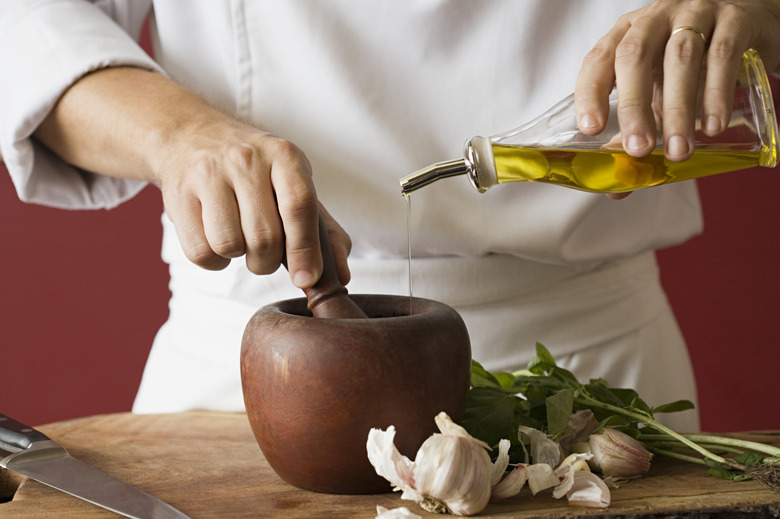Both grams and liters are common units of measure. A gram is a unit of mass equal to about a paperclip while a liter is a unit of volume and is a common allotment of liquids such as beverages or gasoline.
In 1901, the Conférence Générale des Poids et Mesures in France defined a liter (L) as one kilogram (kg) of pure water under normal atmospheric conditions. By extension, then, 1 g of water is 0.001 L, or 1 mL. Water is thus defined as having a density of 1 g/mL or 0.001 g/L.
Often, however, you may wish to find the volume of a number of grams of a substance other than water and thus having a density greater or less than that of water.
Step 1: Determine the Mass of the Substance
You may get this amount, or you may need to weigh the substance on a balance scale. Be sure to convert this number to grams, if necessary.
Step 2: Look Up the Density of the Substance
Densities of most common substances are available online. The densities of pure substances appear on most periodic tables of the elements. Note: These are normally given in g per cm3, or g per mL.
Step 3: Calculate the Volume
Since density is equal to mass divided by volume, then volume must be equal to mass divided by density. Therefore, to calculate volume, simply divide the number derived in Step 1 by the number obtained in Step 2.
Step 4: Convert to Liters
Your answer should be in liters, per specifications of the problem. Because you divided g by g per mL in Part 2, your answer in part 3 is in mL. As a result, divide this number by 1,000 to arrive at your final answer.
Sample calculation
Given 0.043 kg of pure iron, calculate the number of liters this occupies.
((0.043text{ kg})(1000text{ g/kg})=43text{ g})
The density of iron is 7.8 g/mL.
(frac{43text{ g}}{7.8text{ g/mL}}=5.51text{ mL}text{ }frac{5.51text{ mL}}{1000text{ mL/L}}=0.0051text{ L})

